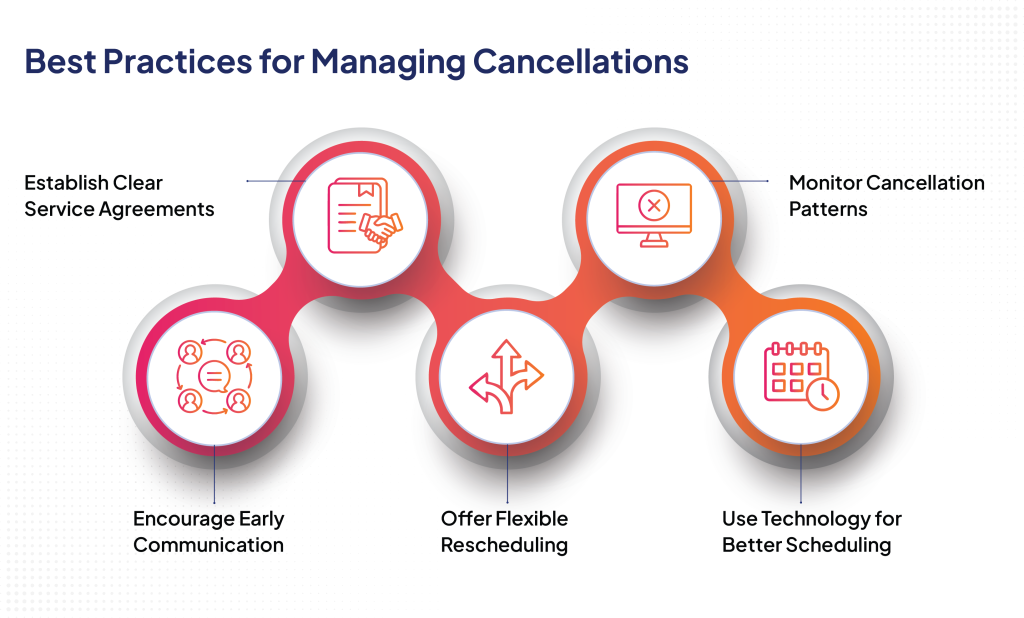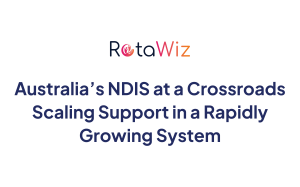22 April, 2025
NDIS Cancellation Policies Explained: What Providers and Participants Need to Know
NDIS latest news
5 min read

The National Disability Insurance Scheme (NDIS) is a cornerstone of disability support in Australia, ensuring that individuals receive the care they need to live fulfilling lives. While the program is designed to be flexible, cancellations can pose significant challenges for both participants and service providers. Misunderstandings around cancellation policies can lead to financial losses, service disruptions, and frustration on both ends.
In this comprehensive guide, we’ll break down the NDIS cancellation policies, discuss their implications, analyze recent statistics, and explore best practices for managing cancellations effectively. Whether you’re a participant or a provider, understanding these policies can help you navigate the system with greater confidence and clarity.
Understanding NDIS Cancellation Policies
NDIS cancellation policies are designed to ensure that providers are fairly compensated for their time while also offering participants the flexibility they need. However, understanding these policies in detail is crucial to avoid unexpected charges and disruptions.
What Counts as a Short-Notice Cancellation?
Under NDIS guidelines, a cancellation is considered “short notice” if:
- For Disability Support Worker (DSW)-related supports
- The participant provides less than 7 clear days’ notice.
- Providers may charge up to 90% of the agreed service fee for a short-notice cancellation, provided this condition is outlined in the service agreement.
- For non-DSW-related supports
- The cancellation occurs less than 2 business days before the scheduled service.
- Providers can still claim up to 90% of the service fee, depending on their agreement with the participant.
These policies ensure that providers are not left without compensation when participants cancel appointments at the last minute. However, they also require clear communication and agreement between both parties to avoid misunderstandings.
Why Do NDIS Cancellations Happen?
Cancellations can occur for a variety of reasons. Some of the most common include:
- Illness or medical emergencies – A participant may not feel well enough to attend their session.
- Scheduling conflicts – Double bookings or unexpected personal commitments may interfere with appointments.
- Transportation issues – Lack of transport or unforeseen delays can prevent a participant from reaching their appointment.
- Lack of provider availability for rescheduling – Some participants cancel due to changes in their routine but find it difficult to reschedule due to provider availability.
- Unclear service agreements – Misunderstandings about cancellation policies can lead to unintended short-notice cancellations.
Understanding these reasons can help providers and participants find better ways to reduce cancellations and ensure continuity of care.
Impact of Cancellations on Participants and Providers
How Cancellations Affect Participants
- Service Disruptions: Frequent cancellations can affect the consistency of support services, leading to delays in progress for participants.
- Difficulty Rebooking Services: Some providers may limit future bookings if a participant cancels frequently.
- Potential Financial Loss: Depending on the service agreement, participants may still be charged for missed sessions, affecting their NDIS funding.
- Trust and Relationship Issues: Repeated cancellations can strain relationships between participants and providers, reducing trust and reliability.
How Cancellations Affect Providers
- Lost Income: Short-notice cancellations leave providers without compensation unless a clear policy is in place.
- Inefficient Scheduling: Gaps in scheduling reduce efficiency, leading to idle time that could have been allocated to other participants.
- Operational Challenges: Rescheduling can be difficult, especially for providers with full calendars, affecting service quality.
NDIS Cancellation Trends and Statistics
Analyzing recent data helps us understand how cancellation policies impact the industry:
- Between July 2020 and December 2022, cancellations accounted for approximately 0.6% of Disability Support Worker claims.
- The cancellation rate remained stable even after policy updates, indicating that participants and providers have adapted to the guidelines.
- Short-notice cancellations primarily affected therapy and personal support services, highlighting the need for better scheduling tools and communication strategies.
These statistics emphasize the importance of effective scheduling and clear communication to minimize disruptions.

Best Practices for Managing Cancellations
To minimize the negative effects of cancellations, participants and providers can follow these best practices:
1. Establish Clear Service Agreements
- Participants should carefully review service agreements to understand cancellation terms.
- Providers should clearly outline cancellation policies, fees, and rescheduling options.
2. Encourage Early Communication
- Participants should notify providers as soon as possible if they need to cancel or reschedule.
- Providers can implement reminder systems via SMS or email to reduce no-shows.
3. Offer Flexible Rescheduling
- Instead of enforcing strict cancellation fees, providers can offer rescheduling options.
- This approach strengthens provider-participant relationships and ensures service continuity.
4. Monitor Cancellation Patterns
- Providers should track participant cancellation trends and discuss any recurring issues.
- Automated scheduling tools like RotaWiz can help providers manage cancellations and optimize bookings efficiently.
5. Use Technology for Better Scheduling
- Digital scheduling tools allow participants to book, cancel, or reschedule appointments seamlessly.
- Platforms like RotaWiz help providers manage shifts, track cancellations, and improve efficiency.
Future of NDIS Cancellation Policies
As the NDIS continues to evolve, discussions about refining cancellation policies remain ongoing. Industry experts suggest:
- Further flexibility for participants who face unavoidable cancellations due to disability-related challenges.
- A potential grace period for first-time cancellations before charges apply.
- More provider support for rescheduling instead of outright cancellations.
It is crucial for both providers and participants to stay updated on any future policy changes to ensure compliance and avoid financial loss.
Final Thoughts
NDIS cancellation policies are designed to create fairness and accountability for both participants and providers. While they protect providers from financial loss, they also ensure that participants receive the care they need without excessive penalties.
By implementing best practices such as clear service agreements, proactive communication, and efficient scheduling tools, both parties can reduce the impact of cancellations and improve service continuity.
For the latest updates on NDIS pricing and policy guidelines, visit the official NDIS website.


